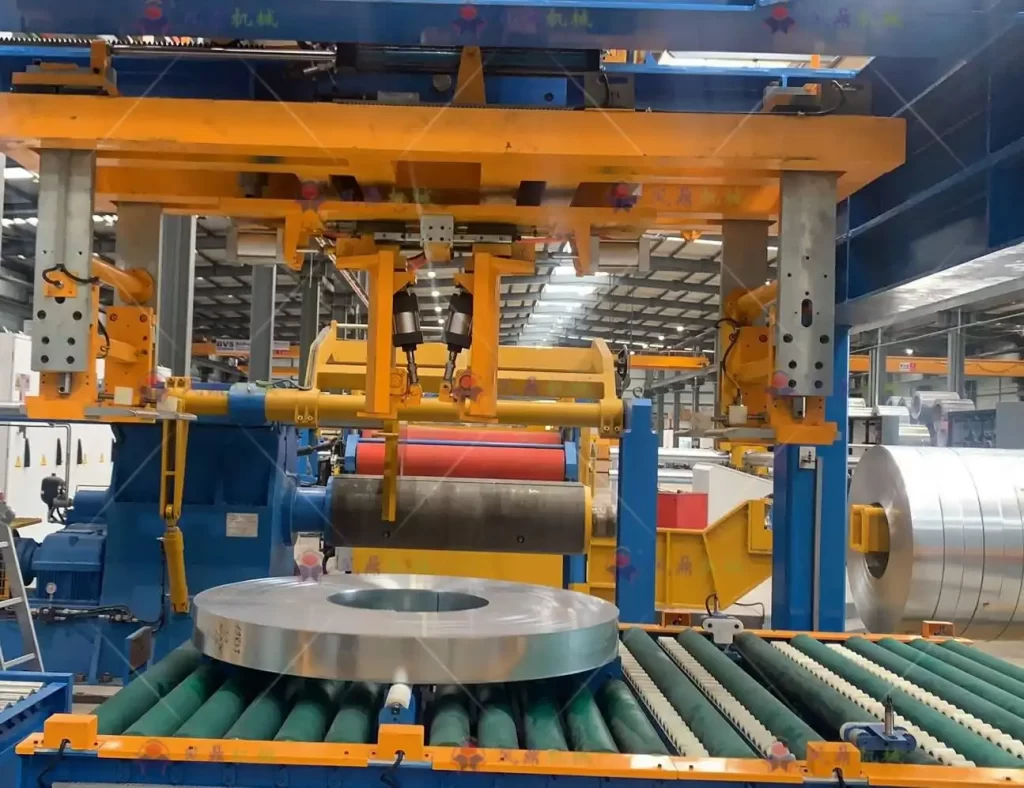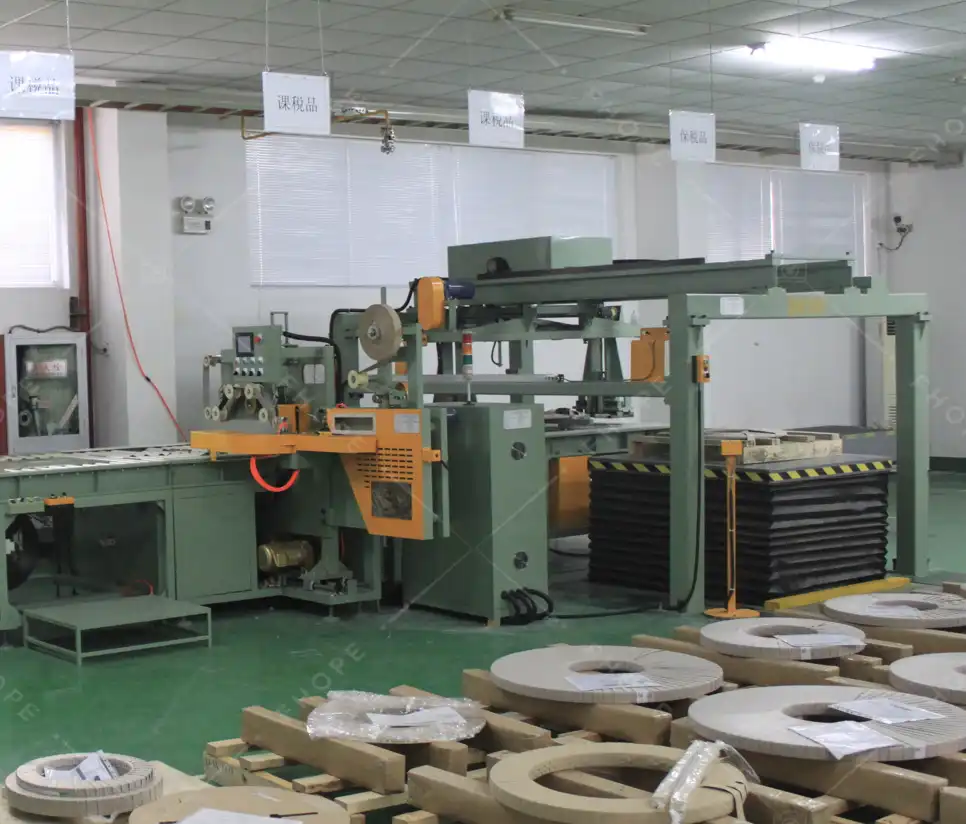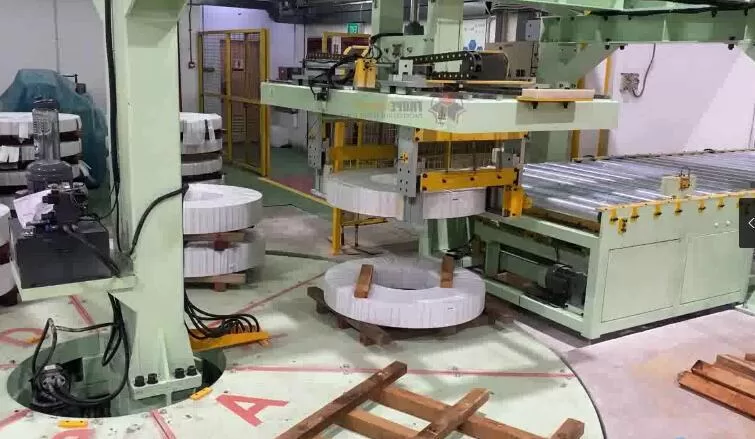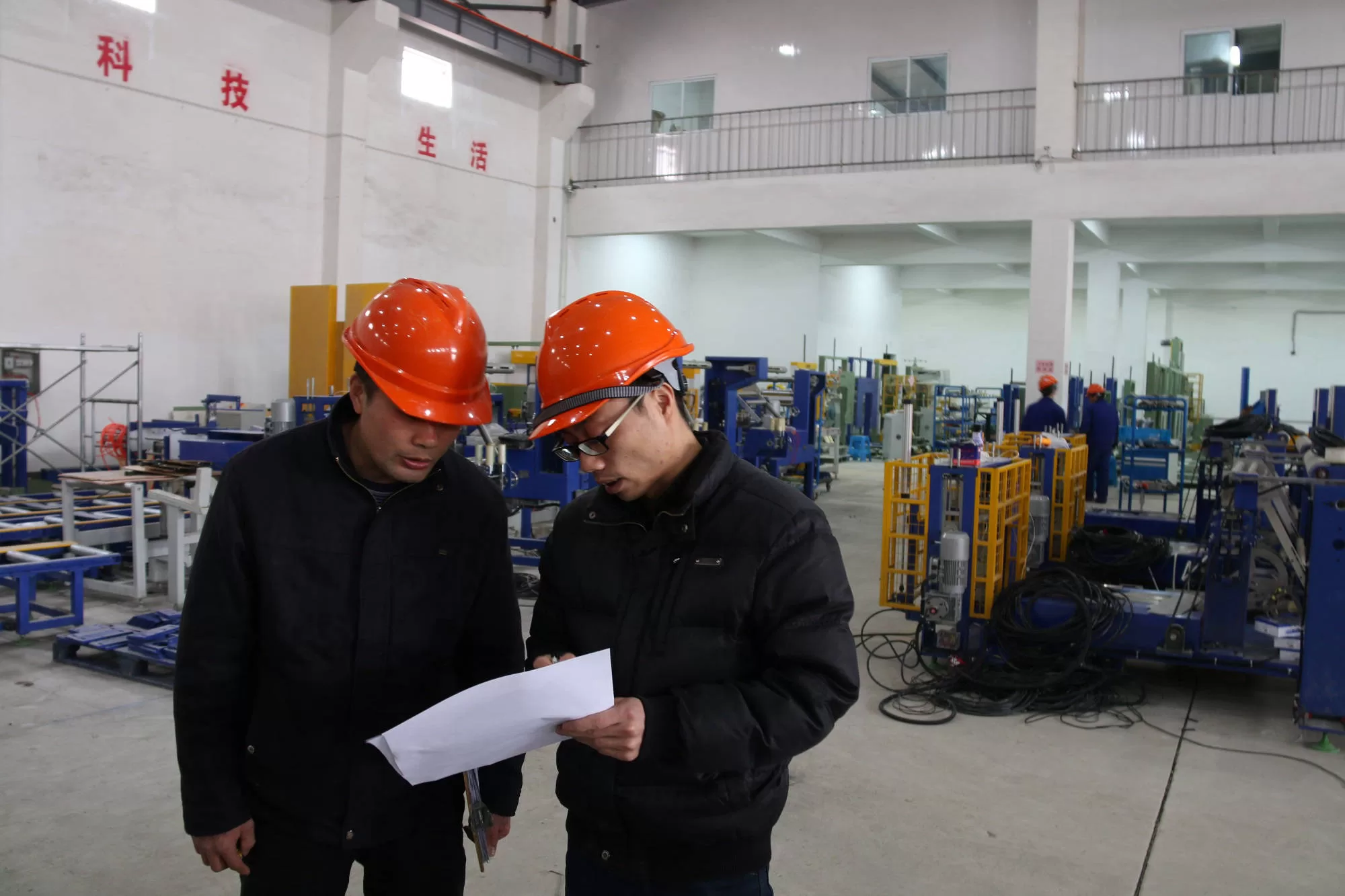Meeting International Packaging Standards with Automated Steel Coil Packing Systems

In the globalized world of manufacturing, standardization is crucial for ensuring quality, safety, and efficiency across industries. For steel coil packaging, adhering to international standards is not merely a regulatory hurdle but a key factor in maintaining product integrity and market competitiveness. The implementation of automated steel coil packing systems provides manufacturers with an efficient, consistent, and reliable method to meet these global standards while simultaneously boosting operational efficiency. This article explores how automated packing systems facilitate compliance with international packaging standards and the significant advantages they offer manufacturers.
1. The Importance of International Packaging Standards for Steel Coils
International packaging standards, such as those set by the International Organization for Standardization (ISO 9001 for quality management) and ISO 14001 for environmental management, establish benchmarks for consistency and responsibility. Specific practices, like those outlined in ASTM A700 (Standard Practices for Packaging, Marking, and Loading Methods for Steel Products for Shipment), provide detailed guidance for the steel industry. These standards ensure steel coils are packaged robustly to maintain their integrity during transit and storage.
Effective packaging is vital for protecting steel coils from critical threats such as corrosion, physical damage (dents, scratches), moisture ingress, and contamination. Compliance with recognized standards demonstrates a commitment to quality and safeguards the product, enhancing customer trust and satisfaction.
Adherence is particularly critical when exporting steel coils, as many countries enforce strict import regulations based on these standards. Non-compliance can lead to severe consequences, including shipment rejections, costly delays, fines, and reputational damage. Automated steel coil packing systems significantly mitigate these risks by delivering consistent and verifiable packaging quality.

2. How Automated Steel Coil Packing Systems Ensure Compliance
Automated steel coil packing systems are engineered for the precision and repeatability necessary to meet stringent international standards. These systems manage the entire packing sequence—from coil handling and wrapping to strapping and labeling—with minimal human intervention. This automation ensures consistent application quality, drastically reduces the potential for human error, and increases overall throughput.
A key compliance feature is the ability of automated systems to apply precisely controlled tension and pressure during strapping and wrapping operations. This guarantees uniform application of packaging materials (like stretch film or VCI paper) across the coil, crucial for maintaining package integrity and stability as per standards like ASTM A700. Furthermore, integrated sensors and quality control mechanisms monitor each step, verifying that every coil is packed according to predefined specifications aligned with international requirements.
Moreover, these automated systems offer high flexibility. They can be easily configured and adjusted to meet the specific packaging requirements of diverse regions, customers, or standards (e.g., ISO, ASTM, DIN). This adaptability allows manufacturers to maintain compliance across various export markets and industry sectors without needing separate manual processes.
3. Key Features and Benefits of Automated Steel Coil Packing Systems
Automated steel coil packing systems incorporate several features essential for meeting international standards and improving operations:
- Customizable Wrapping and Strapping Protocols: Systems can utilize various protective materials, including stretch film, VCI (Volatile Corrosion Inhibitor) paper, PE (Polyethylene) film, and specialized wraps, tailored to the specific protection needs against environmental factors. Strapping patterns and materials (steel or PET) can also be customized.
- Precision and Consistency: Automated controls ensure uniform tension during wrapping and strapping, securing the coil tightly and preventing damage from shifting during transport. This consistency is difficult to achieve manually.
- Integrated Quality Assurance: Sensors detect coil dimensions, ensure proper material application, and verify strap placement and tension. Systems can flag deviations, halt the process for correction, or log data for traceability, supporting quality management standards like ISO 9001.
- Increased Throughput: Automation significantly speeds up the packing cycle compared to manual methods, enabling manufacturers to meet demanding production schedules and customer deadlines while maintaining compliance.
- Reduced Labor Costs and Enhanced Safety: Automation minimizes manual handling of heavy coils and packaging materials, reducing labor requirements and the risk of workplace injuries and human error in the packing process.
4. Meeting Environmental Standards with Automated Packaging Systems
Beyond quality and safety, manufacturers face increasing pressure to meet environmental standards like ISO 14001. Automated steel coil packing systems contribute positively by optimizing material usage and minimizing waste.
Automated wrappers, for example, can precisely calculate and apply the minimum required amount of stretch film or wrapping material to securely package a coil, significantly reducing material consumption and waste compared to manual application. These systems facilitate the use of recyclable or biodegradable materials, helping manufacturers lower their environmental footprint and meet sustainability targets.
By improving material efficiency and enabling the use of environmentally friendly packaging materials, automated systems support compliance with global environmental regulations and enhance a company’s green credentials. As regulations tighten, these systems offer a forward-looking solution for sustainable packaging practices.

5. Enhancing Supply Chain Efficiency Through Automated Packaging
The advantages of automated steel coil packing systems extend throughout the supply chain. By ensuring compliant, secure, and consistently packaged coils, automation helps streamline logistics and reduce downstream issues.
Faster, more efficient automated packing reduces bottlenecks at the end of the production line. This speed allows manufacturers to handle higher volumes and meet tight delivery schedules reliably. Automation minimizes errors like improper packaging, incorrect labeling, or inconsistent securing, which can cause transit delays, damage claims, and customer dissatisfaction. Eliminating these inefficiencies leads to shorter lead times and improved overall supply chain performance.
Furthermore, many automated systems offer real-time data tracking and integration capabilities (e.g., with MES or ERP systems). This allows manufacturers to monitor packing parameters, track coil packaging status, and generate compliance reports, enhancing visibility and control over the packaging process and supporting traceability requirements.
6. Cost Savings and Return on Investment (ROI)
While representing an initial capital investment, automated steel coil packing systems typically deliver significant long-term cost savings and a strong return on investment (ROI). Key areas of savings include:
- Reduced labor costs due to less manual intervention.
- Minimized packaging material waste through precise application.
- Lower incidence of product damage during handling and transit due to superior packaging quality.
- Avoidance of costs associated with non-compliance (fines, rejected shipments, rework).
The increased throughput and operational efficiency also contribute to higher overall productivity, enabling businesses to process more orders and improve profitability without compromising on packaging quality or standards compliance.
7. Future Trends in Automated Steel Coil Packing Technology
The field of automated steel coil packing continues to evolve. Key future trends include greater integration of advanced technologies like Artificial Intelligence (AI) and the Internet of Things (IoT).
AI algorithms could enable predictive maintenance, optimize packing parameters in real-time based on sensor feedback, and further enhance quality control. IoT connectivity allows for remote monitoring, diagnostics, and data analysis, providing deeper insights into system performance and facilitating integration into smart factory environments.
Sustainability will also drive innovation, leading to automated systems designed for minimal energy consumption and compatibility with a wider range of eco-friendly packaging materials. Manufacturers adopting these advanced automated solutions will be better equipped to meet future regulatory demands and maintain a competitive edge.

8. Conclusion: Investing in Automation for Compliance and Competitiveness
Meeting international packaging standards is essential for steel manufacturers operating in the global marketplace. Automated steel coil packing systems offer a robust, efficient, and reliable solution for achieving and maintaining compliance. The benefits extend beyond regulatory adherence to include enhanced product protection, reduced operational costs, improved supply chain efficiency, and better environmental performance.
As technology progresses and market demands intensify, investing in advanced automated packaging systems positions manufacturers to meet future challenges effectively. Embracing automation is a strategic move to safeguard product quality, enhance operational excellence, and secure a competitive advantage in the demanding steel industry.
For businesses involved in steel coil production and distribution, transitioning to an automated packing system represents a sound investment towards achieving consistent compliance, operational efficiency, and long-term sustainability.

Get Your Best Solution !